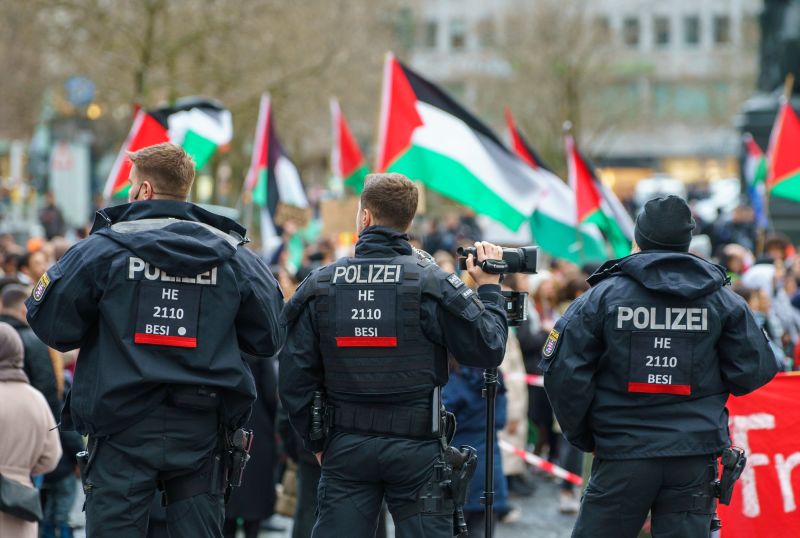The unprecedented crackdown on an already banned Hamas operates in a steadily worsening environment for free speech in Germany. Despite the valid security concerns associated with Hamas, a Palestinian Islamic fundamentalist group, the wider implications for freedom of speech are causing alarm within the country and globally.
Hamas, which has been designated a terrorist organization in many Western countries, including Germany, became the focus of authorities with the renewed enforcement of the ban that prohibits not only its activities but also the use of its symbols and slogans. Moreover, the extent of the crackdown goes beyond prevention of harm to suppressing personal expression linked to Hamas.
The recent operations involved raids on multiple locations, confiscating materials associated with Hamas and monitoring individuals suspected of being allied with Hamas. Several social organizations suspected of financing the group are under scrutiny as well. This aggressive campaign against Hamas is a part of counterterrorism endeavors that Germany contends as necessary to protect national security.
However, this move raises significant concerns among human rights advocates. The issue centers not only on the principle of freedom of expression, but also on its practical implications. The tactics adopted can potentially extend to a wider pattern of silencing any controversial or dissenting speech under the banner of national security. Undeniably, a balance must be struck between maintaining public safety and protecting democratic values, but it is argued that there is a burgeoning tilt towards the former.
One particular concern is the potential misuse of such restrictions. There is a growing unease that the crackdown could be weaponized against political opponents and suppress public discourse on contentious topics like foreign policy, immigration, or other issues deemed sensitive by the government. Also, seen from a more global perspective, Germany’s measures can set controversial precedents and encourage trending patterns of democratic backsliding.
In the face of such restriction, certain sectors indicate resistance as well. Some critics argue that bans do not necessarily halt the spread of extremist ideology, rather, they may potentially cause more harm as they push these groups underground where they may continue to operate further detached from regulations and societal pressure.
It is also worth noting that the uproar is not exclusively about defending the rights of Hamas sympathizers. It’s larger than that – it’s about protecting the free speech rights of all Germans. The concern is that, once a government begins to censor and suppress supposed ‘dangerous’ opinions, there is little that can prevent it from exploiting such power for its ends. Surely, if there is a genuine threat to national security involved, actions need to be taken, but such acts should be proportionate and not compromise the fundamental freedoms infused in the democratic fabric of society.
When considering cases like Germany’s crackdown on Hamas, it is crucial to remember that freedom of speech is neither absolute nor entirely negatable. It is an area of delicate balance between protection from harm and protection of individual liberties, a balance that always requires vigilance to maintain. Freedom of speech is the cornerstone of any democratic society, and by scrutinizing the actions of governments, societies can ensure they do not unnecessarily limit this essential right under the pretext of safety.
Indeed, national security is of utmost importance, and actions are necessary to counter threats. Still, it remains incumbent on democratic societies to delicately navigate these efforts, ensuring safety while not compromising the foundations on which these societies are built – freedom of expression and human rights. The future of free speech in Germany, and indeed the world, may very well be part and parcel of this very struggle.




